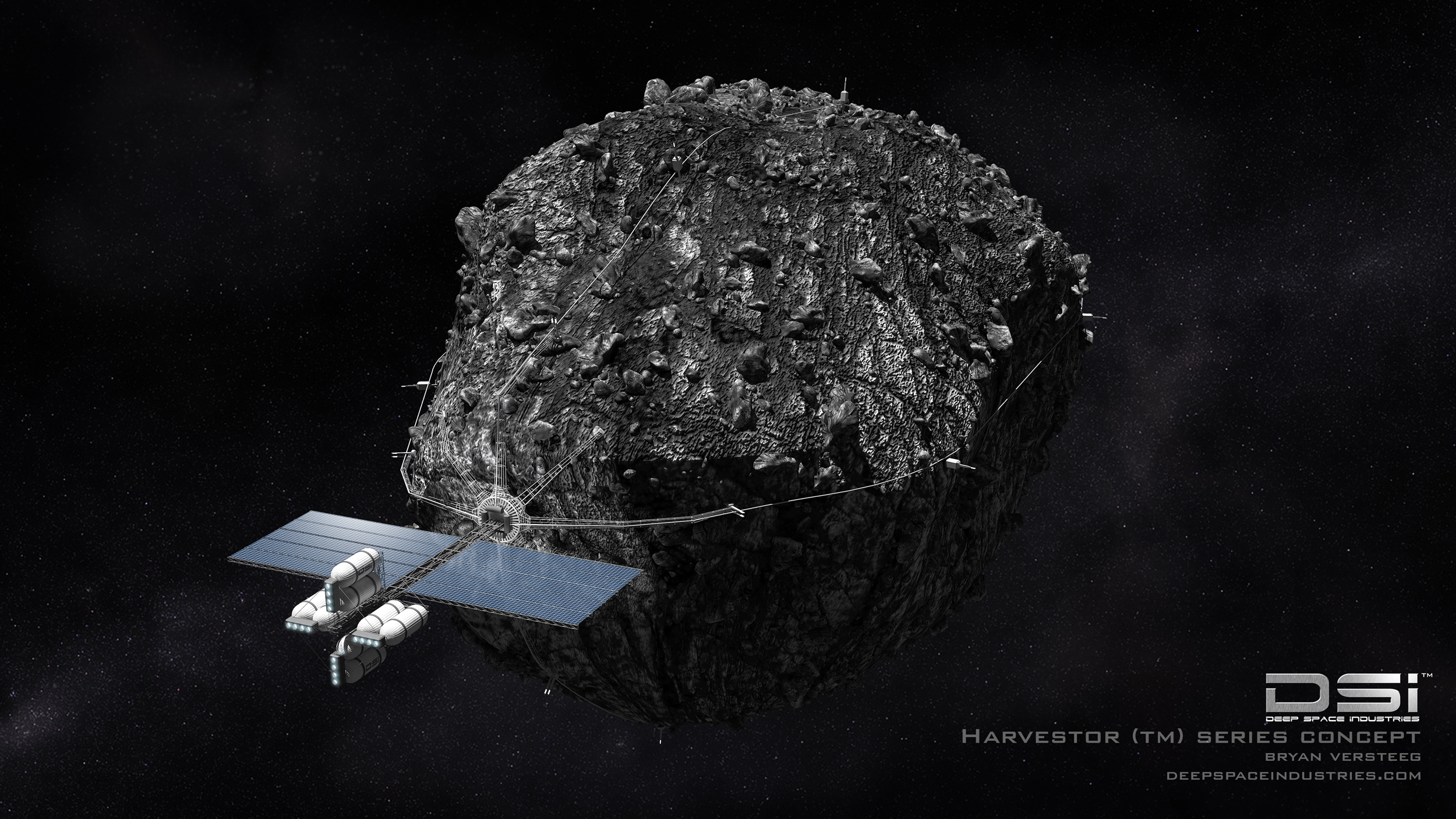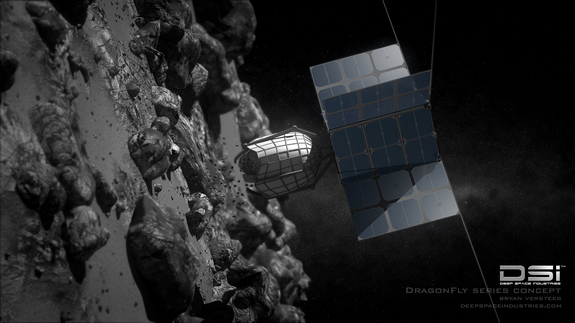
The latest company to launch into the asteroid-mining business isn't worried about competition from its biggest rival, saying that the resources of deep space are vast enough to support a bustling new industry off Earth's surface.
The new company, Deep Space Industries, Inc., announced today (Jan. 22) that it plans to mine asteroids for metals, water and other resources, with the goal of helping humanity spread throughout the solar system. Another company with similar goals, the billionaire-backed Planetary Resources, unveiled its own plans last April.
Both companies can coexist and prosper, Deep Space officials said during a press conference today.
"We love Planetary Resources," Deep Space chairman Rick Tumlinson said. "Space is big. There's room for everybody."
Deep Space and Planetary Resources will go after near-Earth asteroids, many of which are rich in water and a variety of different metals.
Both firms aim to split asteroid water into its constituent hydrogen and oxygen, which are the chief components of rocket fuel. Asteroid-derived propellant could be dispensed from off-planet "gas stations," allowing satellites and journeying spacecraft to top up their tanks cheaply and efficiently.
Such off-Earth depots could extend the lives of satellites and make manned trips to far-flung destinations like Mars much more economically viable, advocates say.
Get the world’s most fascinating discoveries delivered straight to your inbox.
The metals and other materials, meanwhile, could be used to construct habitats, solar-power satellites and other spacecraft, potentially jump-starting an in-space manufacturing industry. Precious metals such as platinum and gold could also be delivered to Earth for terrestrial use.
So far, astronomers have identified more than 9,000 near-Earth asteroids, with about 1,000 being added to the rolls every year. Such numbers suggest there are more than enough to keep two mining companies busy for a long time, Deep Space officials said.
"There are two or three million near-Earth asteroids," said Deep Space CEO David Gump. "There's room for everyone to prosper, I think."
The startup of two asteroid-mining firms — along with the rise of private spaceflight companies such as California-based SpaceX — is a sign that humanity may finally be taking real steps toward the long-held dream of permanent space settlement, Tumlinson said.
"One company may be a fluke," he said. "Two companies showing up? That's the beginning of an industry."
This story was provided by SPACE.com, a sister site to Live Science. Follow SPACE.com senior writer Mike Wall on Twitter @michaeldwall or SPACE.com @Spacedotcom. We're also on Facebook and Google+.






